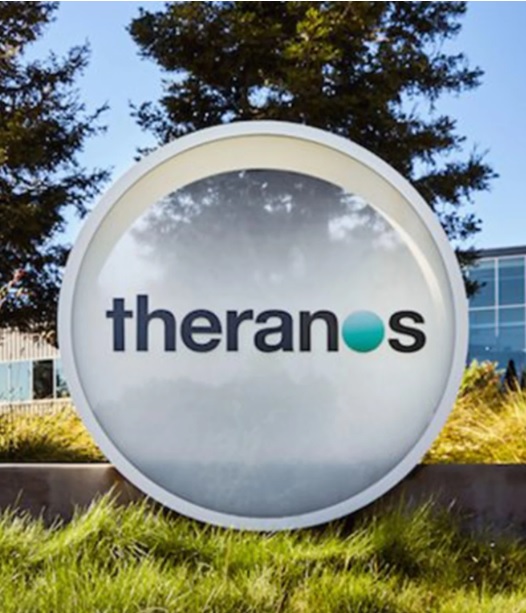Forbes revised the net worth estimate for Elizabeth Holmes to $0 in June 2016, the same Forbes named Holmes the world’s youngest self-made woman billionaire in 2014. She was only 30 years old and worth 4.5 billion dollars.
Elizabeth Holmes once hailed as the visionary founder and CEO of Theranos, embarked on a journey to revolutionize healthcare through her company's groundbreaking technology concerning blood samples.
This article is about the rise and fall of Elizabeth Holmes, exploring the promises, controversies, and legal challenges that surrounded Theranos.

Background
Born on February 3, 1984, in Washington, D.C., Elizabeth Holmes displayed entrepreneurial ambition from a young age. She founded Theranos in 2003 with the audacious goal of transforming the healthcare landscape.
Armed with a Stanford University dropout background and a compelling vision, Holmes sought to create a device, the Edison, capable of conducting a myriad of medical tests with just a few drops of blood obtained through a simple finger stick.
Rise of Theranos
Theranos quickly gained attention for its revolutionary aspirations, attracting significant investments and partnerships with major corporations. The company promised to make diagnostic testing more accessible, cost-effective, and less invasive.
With a board featuring influential figures from various industries, including former Secretary of State Henry Kissinger and former Secretary of Defense James Mattis, Theranos seemed poised to disrupt the healthcare sector.
 [Elizabeth Holmes; Photo Credit: Media Source]
[Elizabeth Holmes; Photo Credit: Media Source]
Challenges and Controversies
The turning point for Theranos came in 2015 when John Carreyrou, twice-Pulitizer-Prize winning journalist published an investigative report on The Wall Street Journal questioning the viability and accuracy of the Edison device. The article sparked widespread skepticism, leading to increased scrutiny of Theranos' claims by FDA.
Accusations emerged that the company misled investors and patients about the capabilities of its technology. As doubts mounted, the reputation of Theranos and its charismatic leader began to unravel.
Investigations and Legal Action
Subsequent investigations by federal agencies, including the U.S. Securities and Exchange Commission (SEC) and the Department of Justice (DOJ), resulted in charges of massive fraud against Elizabeth Holmes and former president Ramesh "Sunny" Balwani in 2018.
The allegations centered on a years-long scheme to deceive investors and patients about the capabilities of the Edison device. The legal proceedings marked a significant fall from grace for Holmes, who had once been celebrated as a Silicon Valley trailblazer.
The Trial
In 2021, the trial against Elizabeth Holmes commenced, drawing attention from the media and the public alike. The courtroom drama unfolded as prosecutors presented evidence of fraudulent practices, while Holmes defended her actions and the integrity of Theranos' mission.
The trial became a focal point for discussions on corporate accountability, ethical considerations in the tech industry, and the consequences of inflated promises in the start up culture.
Public Reaction and Impact
The Theranos scandal had a profound impact on the health care industry, prompting a reassessment of investment practices and regulatory oversight. The saga also raised questions about the ethical responsibilities of leaders in the tech sector.
Investors, patients, and the public were left grappling with the consequences of misplaced trust in a company that had promised to transform health care but ultimately failed to deliver.
Ethical Considerations
The Theranos case brought to light ethical concerns surrounding the culture of Silicon Valley. It underscored the importance of transparency, accountability, and rigorous validation in the development and promotion of groundbreaking technologies.
The fallout from Theranos prompted a re-evaluation of the "move fast and break things" mentality prevalent in the startup ecosystem, emphasizing the need for ethical leadership and responsible innovation.
Conclusion
In 2022, Holmes was found guilty of defrauding investors and later in November, she was sentenced to over eleven years in prison.
The Theranos saga serves as a cautionary tale for the tech industry. It highlights the potential consequences of prioritizing hype over substance and the importance of maintaining integrity in the pursuit of innovation.
The legacy of Theranos will undoubtedly shape discussions on corporate governance, ethical practices, and the expectations placed on visionary leaders in the ever-evolving landscape of Silicon Valley.



You must be logged in to post a comment.